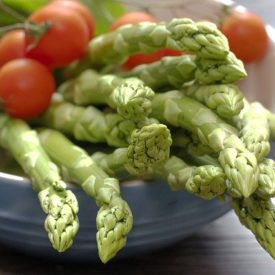
Although you might be under lockdown, you are still allowed to go to the supermarket to buy food. The following information might help in terms of making healthier choices on what foods to buy.
When we are under high stress, we can often reach for foods that are “comforting” (like cookies, donuts, cake, pastries, and chocolate bars), but these foods may not be the best choice for feeding your brain under stressful and demanding circumstances. Comfort foods are often calorie-rich but nutrient-poor.
Further, under high stress (and it doesn’t actually matter what has caused the high stress, whether it be a natural disaster like an earthquake or fire, or witnessing something really traumatic or being stressed because of financial and health uncertainty), the reactions our body goes through can be quite similar. We release adrenaline. This is part of our natural alarm response system.
Adrenaline is an essential neurotransmitter that is released as part of the fight-flight response. It enables our body to get us to safety, shut down non-essential functions, and make sure the muscles needed for flight or flight get activated. Cortisol, a hormone, is also essential for the alarm system to function optimally.
Unfortunately, over extended periods of time, the alarm system can go into over-drive, and this is one factor that can lead to re-experiencing memories, flashbacks, hypervigilance, being on edge all the time, feeling anxious and panicky when reminded of the traumatic event, struggling with sleeping and having nightmares.
Making neurotransmitters (like dopamine or serotonin) and hormones (like cortisol) requires micronutrients, which are numerous kinds of vitamins and minerals. This is a well-established scientific fact. Micronutrients like zinc, calcium, magnesium, iron, and niacin are all essential for making neurotransmitter chemicals for the brain and the body. If your body is depleted of these nutrients, then either it won’t have sufficient nutrients to make these essential chemicals, or it will redirect all resources to the fight-flight response (as it is so vital for survival) and there won’t be much left for ensuring optimal brain function to do things like concentrate, regulate moods and sleep.
Consequently, as micronutrients get depleted at a high rate during times of stress, we need to replenish them in greater quantity from our food (and perhaps other sources).
Where can we get these micronutrients from?
Answer: Nutrient-dense foods; real food, not ultra-processed foods.
Compare a banana to a cookie; one obtains far more of these micronutrients (like potassium, magnesium, folate) that are required for brain function from a banana. Eating kale chips over potato chips would also provide more nutrients. Reaching for a carrot stick and dipping it in hummus would be better for your brain than gorging down a commercial meat pie (although meat pies can be healthy if they contain lots of vegetables too). Choosing nuts and seeds over pretzels would also give you better brain food.
Overall, to cope well with stress your goal should be to increase intake of plant food and food high in nutrient density while still getting adequate protein, fats and carbs. Fish is a great source of protein and of essential fatty acids, which are also vital for brain function. In eating these types of foods, you would be shifting your diet from a Western type of diet (ultra-processed, high in sugar) to a Mediterranean-style diet (high in fruits and veggies, fish, nuts, healthy fats and low in processed foods).
Therefore, stop counting calories and start focusing on nutrients, especially nutrients that are good for your brain!
Would this be sufficient to sooth the over activated alarm system in a situation of high and chronic stress? Possibly, although some people might need more nutrients than what they can get out of their diet, even if it is a healthy one. There are many reasons for this, some of which reflect reduced nutrient density in modern foods, some of which are due to our own specific genetic make-up, and some have to do with the health of our microbiome (the millions of helpful bacteria that live inside us, especially in our gut).
If you do need to consume more nutrients than what you can source from your diet, or you are struggling with cooking due to your particular circumstances and the stresses you are experiencing, or you are time poor because of family or work demands, what do you take in terms of a supplement? Research from the Mental Health and Nutrition Lab in Christchurch, NZ found that following the Christchurch earthquakes as well as other research on stressed communities shows that B vitamins, in particular, can be helpful. A recently published meta-analysis confirmed the positive effect of B vitamins on reducing stress. In addition, some may find a reduction of intrusive thoughts requires additional minerals as well.
Basic tips
- Start with whole foods diet approach including good fats, nuts, seeds, fish, a modest amount of meat, vegetables, fruit, whole grains
- Shifting towards eating “real” as opposed to processed foods naturally eliminates unnecessary food additives such as artificial colors, flavors, sweeteners and preservatives that do not add nutritional value and may contribute to psychiatric symptoms in some people
- Limit sugar intake (sugar is everywhere in processed foods, energy/fizzy drinks – look at labels to spot the hidden sugar)
- Watch caffeine and alcohol intake doesn’t creep up
- Eat a good solid nutrient-dense breakfast: e.g., omelette with vegetables, muesli (oats, nuts, raisins) with milk, yogurt, fresh fruit
- Aim for 80:20. That is mostly real food but still, enjoy treats! And when you do, savour them!
Being in lockdown for some might mean having a lot of extra time on your hands. Maybe take the opportunity to try new recipes, learn what to do with chick peas or how to cook beans, make bread, yogurt or cheese, but overall focus on what you can control. And when it all gets a bit too much, focus on your breath. It is amazing what a few deep breaths, slowly inhaling, holding and exhaling, can do to calm the mind.
